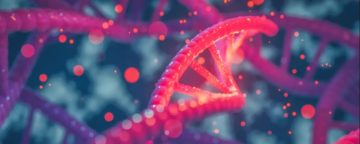Alison Halliday in The Scientist:
 Bringing together engineers, physicists and molecular biologists, the field of synthetic biology uses engineering principles to model, design and build synthetic gene circuits and other molecular components that don’t exist in the natural world. Researchers can then piece together these biological parts to rewire and reprogram living cells – or build cell-free systems – with novel functions for a variety of applications.
Bringing together engineers, physicists and molecular biologists, the field of synthetic biology uses engineering principles to model, design and build synthetic gene circuits and other molecular components that don’t exist in the natural world. Researchers can then piece together these biological parts to rewire and reprogram living cells – or build cell-free systems – with novel functions for a variety of applications.
“For me, the most exciting thing about synthetic biology is finding or seeing unique ways that living organisms can solve a problem,” says David Riglar, Sir Henry Dale research fellow at Imperial College London. “This offers us opportunities to do things that would otherwise be impossible with non-living alternatives.” Scientists are harnessing the power of synthetic biology to develop a variety of medical applications – from powerful drug production platforms to advanced therapeutics and novel diagnostics.
In recent years, rapid decreases in the cost of DNA sequencing and synthesis – and the development of gene-editing technologies, such as CRISPR-Cas9 – have enabled researchers to engineer biological systems with unique and increasingly complex functions. “The combination of these tools has provided us with unprecedented opportunities to apply synthetic biology to study living systems and understand how they work,” states Riglar.
More here.
